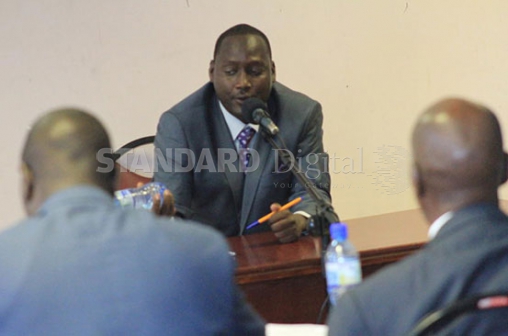×
The Standard e-Paper
Smart Minds Choose Us

The vetting of Baringo County Cabinet nominees is still the talk among residents, nearly two weeks after the dramatic exercise.
The drama started even before the vetting, when Governor Stanley Kiptis failed to make public the CVs and academic credentials of his 10 nominees and only posted scanty details after sustained public pressure.